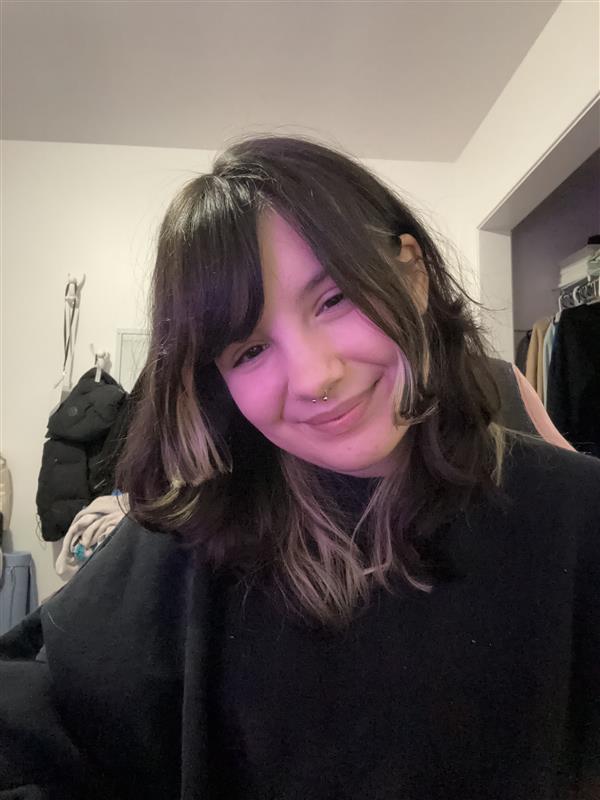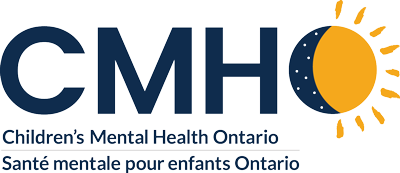There is no doubt that Arwen Cooke carries their identity as an Indigenous person with pride and resilience.
“It comes with struggles, but I don’t ever feel ashamed of who I am,” Arwen says.

Arwen Cooke, YAC Co-Chair, CMHO
Arwen, a 21-year-old psychology student who identifies as two-spirit, is part of the Otter clan. They dream of becoming a rural family doctor, inspired by their uncle, a travel nurse who often supported remote Indigenous communities. From his stories, Arwen learned about the poor health outcomes Indigenous families face when seeking care. Their own struggles to find support for anxiety deepened that awareness and ultimately led Arwen into advocacy — now serving as Co-Chair of CMHO’s Youth Action Committee and a proud voice with The New Mentality.
“I have a big heart, and my guiding principle is respect and compassion,” Arwen says.
Reflecting on Truth and Reconciliation
For Arwen and their family, National Truth and Reconciliation Day hits close to home. Arwen is the first generation in their family not to attend a day school and the third generation removed from a residential school.
Day schools were one of the government’s earliest tools of assimilation, before residential schools became widespread in the late 19th century. Although day-school students returned home at night, they were still exposed to the same abuses as those in residential schools.
Arwen grew up hearing firsthand how this system shaped their family. But it was their great-grandmother’s experience in residential school that left the strongest imprint.
“My big gran’s weakening memory may have held up longer if it weren’t for the violence she received at the hands of the nuns who punished her for speaking the only language she knew.”
As Canada marks Truth and Reconciliation Day this September 30, Arwen urges people to remember that most of the 94 Calls to Action from the Truth and Reconciliation Commission remain unfinished. “Beyond my personal words, the biggest resource I would point to is those 94 calls to action and the National Centre for Truth and Reconciliation.”
Experience and Mental Health
Arwen is open about how intergenerational trauma shaped their own mental health. “I was served a hand that predisposed me for anxiety,” they explain. Finding professional support was nearly impossible.
“Being understood as an Indigenous youth by a professional felt like Mission Impossible. And even if it was possible, the health insurance many Indigenous people rely on isn’t enough for more than a couple sessions. After that, you’re likely to sit on a waitlist for years.”
At the same time, Arwen’s culture kept them grounded — through teachings on healthy emotional expression, the support of a large family network, and a deep connection to the land.
During a severe mental health crisis, one where Arwen could feel their heart pounding through their chest almost every day, they reconnected with their Otter clan identity through water.
“I was out every day, either swimming or kayaking. Even in the winter, I was still in the open water. It helped, and it turns out my Elders were right about getting outdoors.”
Yet supports rooted in culture are often the first to be lost. “Agencies in my community that were Indigenous-run lost their funding. It’s frustrating because we know the services worked. They were getting people sober, teaching new skills, and strengthening communities, but without funding, the doors closed.”
Voices, Systems, and Change
Arwen believes meaningful change starts with more inclusivity, safety, and accessibility.
“There is so much racism in the mental health and health industries, and it only takes one bad experience to earn someone’s distrust.”
They argue this is why many Indigenous youth remain wary of Western systems. The solution, they believe, lies in bringing culture and care together: hiring more Indigenous practitioners, involving Elders and knowledge-keepers, and funding community-based services.
“Get yourself into the communities, hire Indigenous practitioners and youth, and do your research and reading on our history.”
A history, Arwen believes, that is just as relevant in the present as it was in the past.
Hopes and Futures
As a student, Arwen finds hope in their peers, both Indigenous and non-Indigenous, who are eager to understand and create change.
“We are in dire need of more Indigenous people in every field, especially healthcare. Seeing my peers so open to learning and so committed to our worldviews gives me hope.”
For Arwen, Truth and Reconciliation is not a one-day observance but an everyday choice. Their dream is simple but profound: a Canada where prejudice and racism no longer exist; where every Canadian knows the history of residential schools; and where Indigenous youth, and all children, can pursue their goals without barriers.
“True reconciliation isn’t something we do for recognition or because we have to — it’s something we do because we want to. It’s not about words but about creating a future where Indigenous kids can thrive without their race being a roadblock or a reason for hurt.”


0 Comments